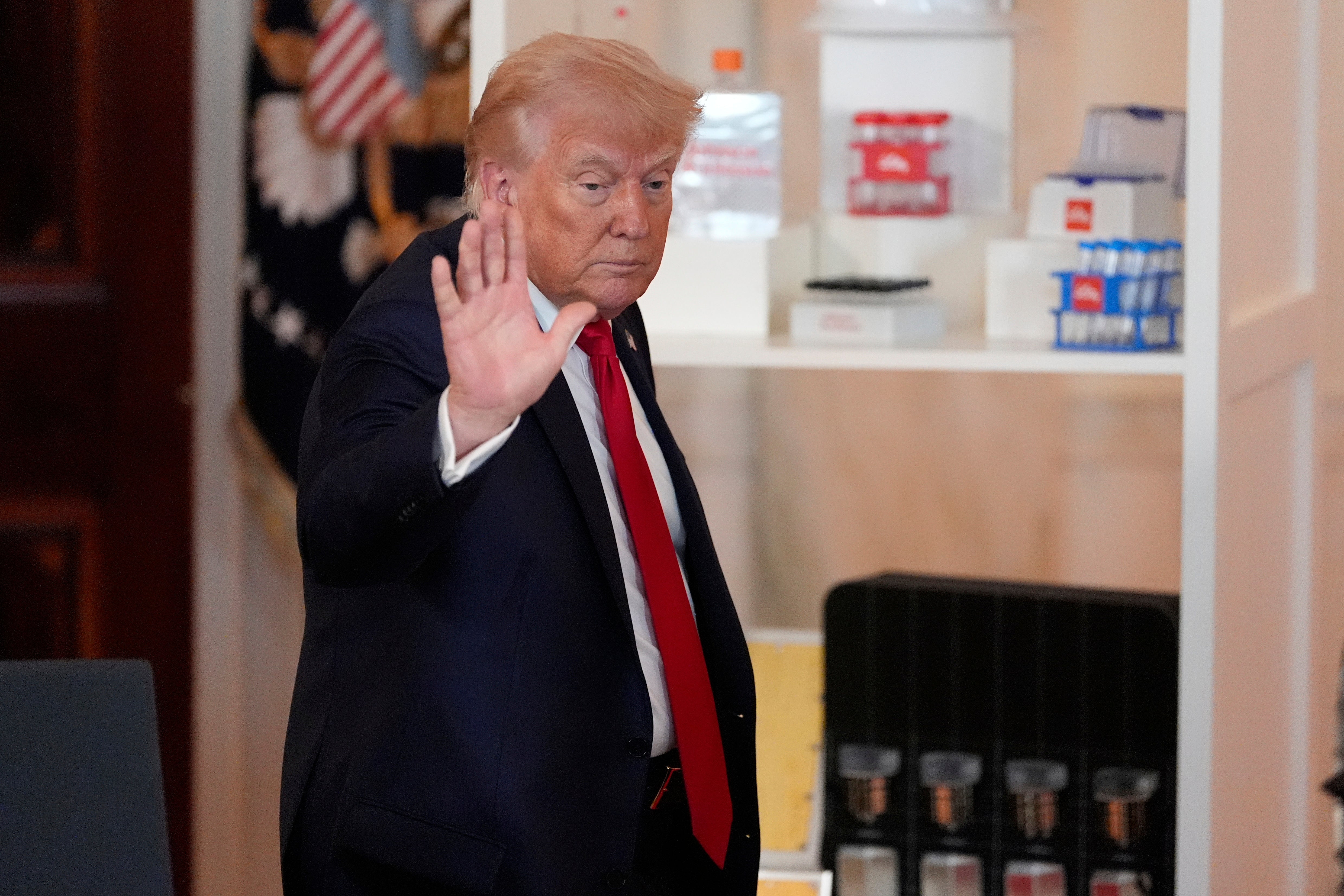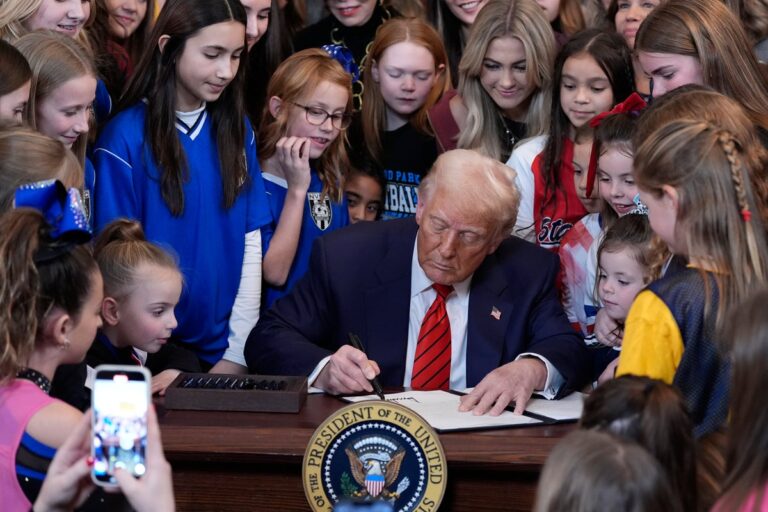Your support helps us to tell the story
From reproductive rights to climate change to Big Tech, The Independent is on the ground when the story is developing. Whether it’s investigating the financials of Elon Musk’s pro-Trump PAC or producing our latest documentary, ‘The A Word’, which shines a light on the American women fighting for reproductive rights, we know how important it is to parse out the facts from the messaging.
At such a critical moment in US history, we need reporters on the ground. Your donation allows us to keep sending journalists to speak to both sides of the story.
The Independent is trusted by Americans across the entire political spectrum. And unlike many other quality news outlets, we choose not to lock Americans out of our reporting and analysis with paywalls. We believe quality journalism should be available to everyone, paid for by those who can afford it.
Your support makes all the difference.
Read more
President Donald Trump has branded himself the ‘Fertilization President’ and wants Americans to have more children – but his and tariffs could make life for growing families a lot more difficult.
Car seats, strollers and other goods essential for raising an infant will be impacted by Trump’s trade war with China, with expectant families stocking up items as baby stores worry about their futures.
Meanwhile, trade associations are trying to get an exemption from the administration.
Natalie Gordon, found and CEO of Babylist, an e-commerce marketplace for baby items, told The Washington Post, “It’s a tax on families who are having a baby.”
“Tariffing these products is completely at odds with that stated goal of increasing birth rate and supporting families,” she added.
Babylist and other companies have joined together with the Juvenile Products Manufacturers Association to lobby for a tariff exemption.
The push has included an ad campaign that calls the tariffs a “baby tax” and a letter to Trump pushes him to “exclude all juvenile products from these tariffs on Chinese imports… o American parents and caregivers can protect the health and safety of American babies and toddlers.”
The Trump White House has been sharing various ideas on how to increase the falling U.S. birthrate, such as a $5,000 “baby bonus” to those who have a child. Top officials, including Vice President JD Vance, have focused on the issue. Vance has said on repeated occasions that the falling birthrate should “bother” people.
Speaking about the notion of a baby bonus in April, Trump said, “Sounds like a good idea to me.”

At a Women’s History Month im March, the president nicknamed himself the “fertilization president” as he announced the formation of the Republica Women’s Caucus in Congress.
“We’re gonna have tremendous goodies in the bag for women too,” he said. “The women, between the fertilization and all the other things we’re talking about, it’s gonna be great.”
“Fertilization. I’m still very proud of it, I don’t care,” he added. “I’ll be known as the fertilization president and that’s okay.”
However, the rising costs is ofter given as the main reason that couples are opting to go child-free.
Trump has agreed to some exemptions to his trade war, providing relief to some carmakers, but he has so far remained steadfast in his trade war with China, in which some tariffs have now reached 145 percent.
The president said it was “good” that his policies have made it difficult for Americans to buy goods from China, adding that “they deserve it,” during an interview with ABC broadcast on Tuesday.
Some experts worry that families will limit their spending, which may lead to unsafe conditions for some children.
The owner of the Washington D.C. boutique baby store Three Littles, Elizabeth Mahon, told The Post, “I love the idea of manufacturing in America, and I see the value in it. But, right now, businesses are really struggling.”
“It’s not fearmongering. It’s real. I cannot get inventory,” she added.
Mahon noted that purchases at her store increased when the tariffs were announced, with families trying to avoid the ramifications of the incoming policy, noting that some bought strollers and car seats before pregnancy. She added the her stores can only stay open for another six months if tariffs continue to impact purchases.
“There are products that we sell that we don’t have any idea when we’re going to get more of them,” Mahon told the paper. “I would happily buy the same products if they were manufactured in America, but they are not, and the problem is the things that we’re selling are necessities. These aren’t just willy-nilly purchases. They are keeping kids safe, and if families cannot find car seats, the direct result is that kids are less safe.”


